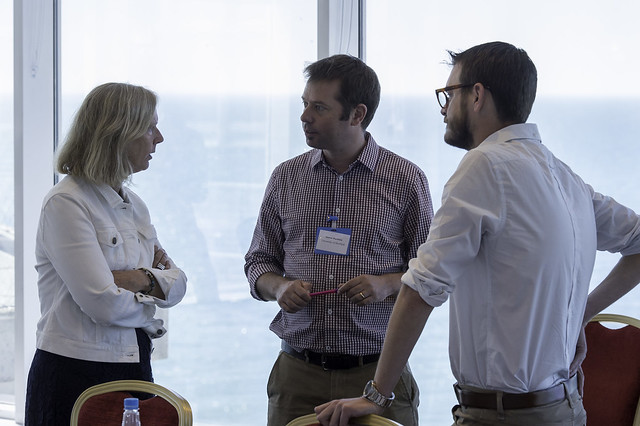A workshop hosted by the Centre for Global Health Policy, University of Sussex
25-26 May 2017
Chartwell Suite @ The Hilton Brighton Metropole Hotel
King’s Road, Brighton BN1 2FU, UK
The growing availability of new pharmaceutical interventions that can mitigate deadly diseases at molecular scale has profoundly reshaped global health policy over the past two decades. Numerous global health initiatives have emerged that promote the development of medicines and vaccines against neglected tropical diseases, HIV/AIDS, TB and malaria, and their distribution in developing countries. Furthermore, governments are working with pharmaceutical companies to harness medicines and vaccines as a means to strengthen the security of their populations and economies against a range of biological dangers – from pandemics, and bioterrorism, through to accidental laboratory releases and the rise of antimicrobial resistance. The United States, for instance, has already invested billions in the development of ‘medical countermeasures’ to strengthen civilian biodefence, whilst the European Union has recently concluded a joint procurement agreement for such ‘medical countermeasures’. WHO recently created a ‘Blueprint’ for the development of drugs and vaccines for epidemic preparedness and the newly founded Coalition for Epidemic Preparedness Innovations (CEPI) is working on developing new vaccines for pandemic threats. At the same time, the development of new pharmaceutical technologies has generated intense global challenges around achieving more equitable international access to them, and shaped the institutional architecture and political economy of global health governance.
All of this emphasis on pharmaceutical logics and solutions in global health policy gives rise to a number of pertinent questions:
- Where does the focus on pharmaceuticals in global health come from, and how is it linked to wider epistemic shifts in our underlying understanding of life?
- How do the power dynamics play out between governments, pharmaceutical companies, non-governmental organizations, and other actors in this area?
- How is the ‘global health security’ agenda linked to this pharmaceutical ‘turn’ in global health?
- What are the governance implications of using pharmaceuticals as instruments of global health policy?
- How does this pharmaceutical approach shape the political economy of global health?
This two-day workshop brings together scholars from different disciplinary backgrounds to explore these questions in greater depth. The workshop marks the end of a 5-year research project on ‘Pharmaceuticals and Security’ funded by the European Research Council (ERC) and led by Stefan Elbe at the University of Sussex. The aims of the workshop are: 1) to facilitate interdisciplinary dialogue on the role of pharmaceuticals in global health governance and global health security; 2) to invite critical engagement with some of the key findings from the research project; and 3) to explore opportunities for future research collaboration.



